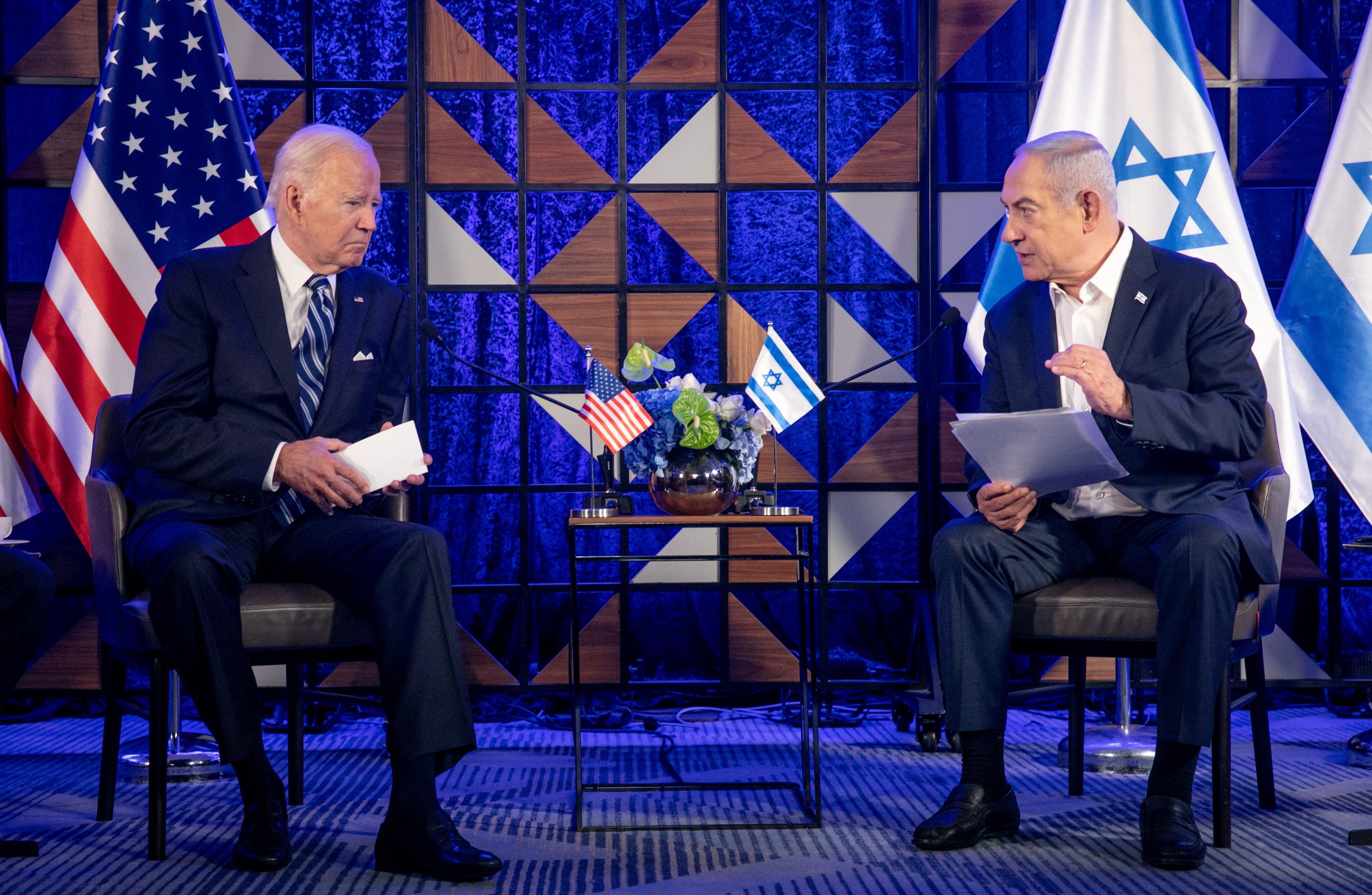
The Biden administration is facing harsh criticism after it was revealed that the State Department authorized more than $1 million in taxpayer funds to renovate swimming pools at U.S. embassies and diplomatic residences located in countries experiencing war and conflict.
A report from Senator Joni Ernst’s office exposed the spending, leading to accusations of wasteful government spending at a time when many Americans are concerned about fiscal responsibility.
Senator Ernst, a Republican from Iowa, did not hold back in her reaction. She called out the Biden administration for what she described as extravagant spending that serves no meaningful purpose for taxpayers.
“The Biden State Department threw a blowout summer pool party on your dime,” Ernst said in a statement shared with Fox News Digital. She added, “Bureaucrats might think wasting millions is a drop in the bucket, but I am sick and tired of taxpayers getting tossed in the deep end by Washington.”
Ernst emphasized her commitment to stopping unnecessary spending in the federal government and announced that she will continue working with the Trump administration to put an end to such expenditures. “I will continue working with the Trump administration to put a stop to the splashy spending of the Biden years,” she stated.
According to Ernst’s office, the State Department approved renovations for several swimming pools in different conflict-ridden countries. Specifically, the report lists two pools in Haiti, five pools in Iraq, three pools in Sudan, one in Russia, one in Zimbabwe, and one in Ghana as part of the projects funded by taxpayers. The total cost for these upgrades amounted to more than $1.2 million.
The report highlighted some of the most notable expenditures. For example, the U.S. embassy in Moscow received $41,259 for pool rehabilitation work. This contract was signed just a few months after Russia’s invasion of Ukraine in February 2022, with the contract dated from June 3, 2022, through August 15, 2022.
This spending occurred while the war between Russia and Ukraine continued to escalate, raising questions about the necessity of pool repairs at the embassy during such turbulent times.
In Iraq, the U.S. embassy in Baghdad was allocated a significant sum of $444,000 for replacing the indoor dehumidification system for its swimming pool. This contract started on September 27, 2024. Additionally, the U.S. Consulate in Erbil, Iraq, was given over $10,000 for mechanical repairs on its pool, as detailed in Ernst’s findings.
Sudan, another war-torn nation, was not excluded from the pool renovations. In 2021, $24,000 in taxpayer money was spent on installing a pool deck. This spending came despite the fact that Sudan has been under a State Department “do not travel” advisory due to armed conflict, civil unrest, crime, terrorism, and kidnapping.
Furthermore, the U.S. embassy in Khartoum, the capital of Sudan, suspended its operations in 2023 because of the ongoing violence in the country.
The report also identified other contracts that have been approved but not yet fully paid out. For instance, $173,000 was awarded for work on a swimming pool at the U.S. embassy in Jakarta, Indonesia. This information raised additional concerns over how taxpayer funds are being allocated for such projects at diplomatic locations.
Criticism of government spending on embassies abroad is not new. During the Obama administration, the federal government was previously slammed for spending large sums on artwork for U.S. embassies worldwide.
This latest report on embassy pool renovations has added to the growing frustration among lawmakers and taxpayers who believe government funds should be used more responsibly.
Funding for U.S. embassies comes primarily from congressional appropriations to the U.S. Department of State. This funding is supposed to support essential diplomatic activities, security, and necessary maintenance of facilities abroad. However, Ernst and other critics argue that spending over a million dollars on pools in conflict zones is a blatant misuse of these resources.
The release of Ernst’s report follows ongoing efforts by the Department of Government Efficiency, which has been working to save the federal government billions of dollars by investigating various agencies for corruption, overspending, and mismanagement.

These investigations aim to bring more accountability and efficiency to how taxpayer money is used across all sectors of government.
Secretary of State Marco Rubio has been leading efforts to overhaul the State Department’s spending practices. Rubio has been vocal about eliminating waste and has already made headlines for shutting down the United States Agency for International Development (USAID).
Earlier in July, Rubio announced that USAID would cease operations after failing to demonstrate that its programs effectively support America’s interests abroad.
In a statement about the closure of USAID, Rubio declared, “This era of government-sanctioned inefficiency has officially come to an end. Under the Trump administration, we will finally have a foreign funding mission in America that prioritizes our national interests.”
He added, “As of July 1st, USAID will officially cease to implement foreign assistance. Foreign assistance programs that align with administration policies – and which advance American interests – will be administered by the State Department, where they will be delivered with more accountability, strategy, and efficiency.”
Rubio’s remarks highlight the broader mission of the Trump administration to ensure that every dollar of foreign aid and embassy funding directly benefits U.S. interests and is not wasted on non-essential projects like pool upgrades in war zones.
The closure of USAID was a significant move toward streamlining the federal government's approach to international assistance.
Senator Ernst’s efforts to expose wasteful spending have been part of a larger push to cut back on unnecessary government expenditures. Her report on embassy pool renovations is just one example of how federal dollars are being spent in ways that many Americans find questionable. Ernst's focus remains on protecting taxpayers and ensuring that government resources are allocated to areas that truly serve the nation’s interests.

The revelations from Ernst’s report have sparked a broader conversation about how embassy maintenance budgets are determined and whether such luxuries as swimming pool renovations should be prioritized, especially in countries facing war and instability.
Critics argue that during times of global conflict, resources should be directed toward strengthening diplomatic efforts, improving security, and providing aid to those affected by war, rather than upgrading recreational facilities for diplomats.
As this issue continues to gain attention, many are calling for tighter oversight of State Department spending. Lawmakers and watchdog organizations are pushing for more transparency and stricter guidelines on how embassy budgets are used. The public scrutiny resulting from this report may lead to policy changes that prevent similar expenditures in the future.
For now, the Biden administration faces mounting pressure to justify these expenditures. As fiscal responsibility becomes an increasingly important issue for voters, the administration will likely have to address these concerns more directly.
The controversy over embassy pool spending is a reminder that every dollar spent by the government is subject to public evaluation and criticism, especially when it involves taxpayer money being used for projects that may not seem essential.
The situation has also given momentum to those advocating for broader government reform. With ongoing efforts by the Department of Government Efficiency and continued attention from lawmakers like Senator Ernst and Secretary Rubio, there is a clear movement toward cutting waste and improving accountability in government spending.

In the end, the debate over embassy pool renovations is about more than just swimming pools. It reflects the broader concerns of how the federal government manages its budget, the priorities it sets in foreign policy, and the need to ensure that taxpayer money is used effectively and responsibly, particularly during challenging times both at home and abroad.




